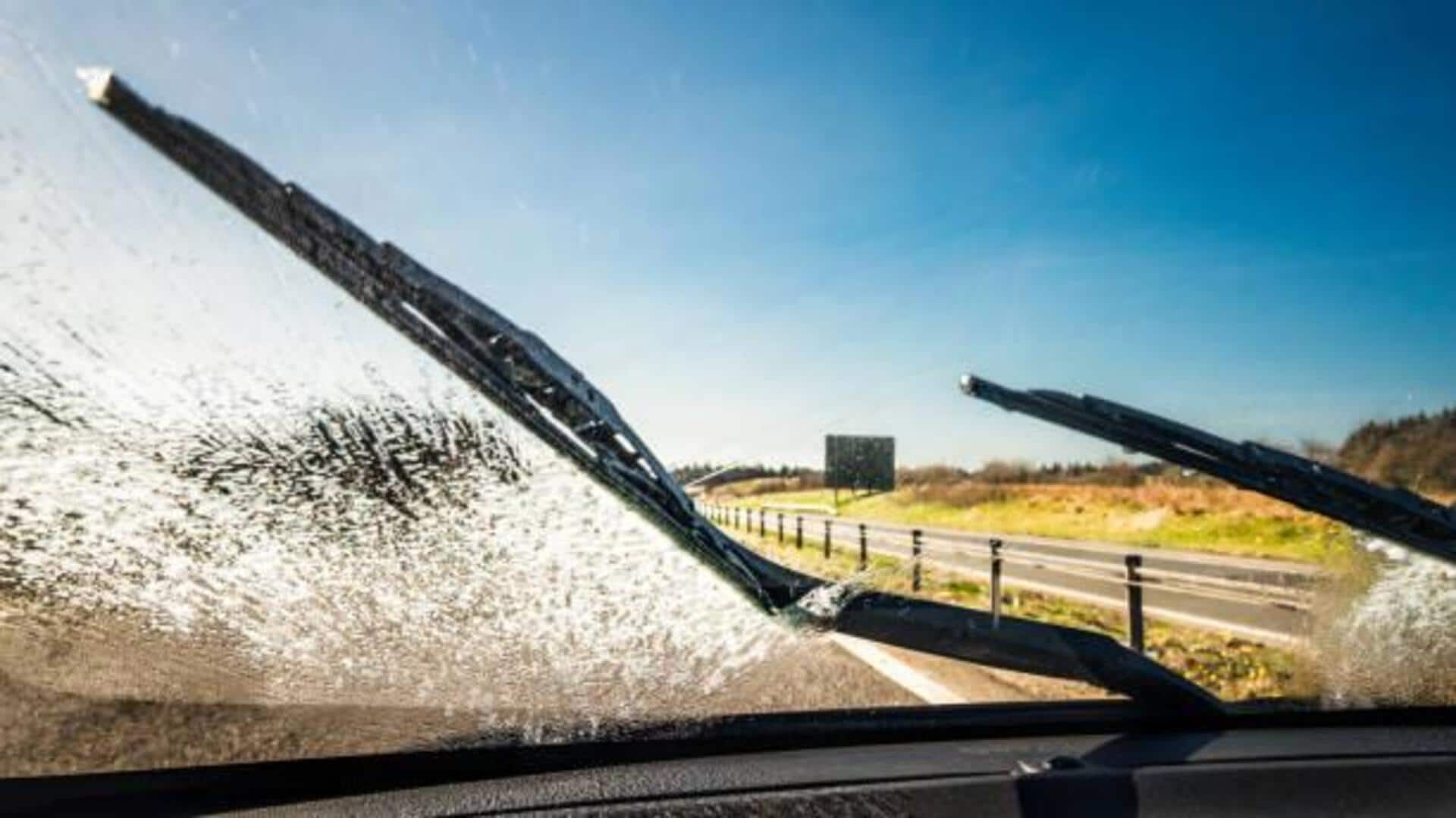
Create your own windshield washer fluid
What's the story
Keeping your windshield spotless is essential for safe driving, and a natural windshield washer fluid can get the job done without harming the environment. This article teaches you how to whip up a zesty natural windshield washer fluid with vinegar and lemon oil. Say goodbye to those harsh chemical concoctions from the store!
Vinegar
Benefits of using vinegar
Vinegar is a powerful cleaner, capable of eliminating stubborn dirt, grime, and residue from your car's windshield. Its acidity cuts through the buildup without harming the glass. Even a 10% vinegar solution can dramatically improve visibility, leaving the windshield spotless and streak-free. So, vinegar is not just perfect for achieving crystal-clear windshields, but also for ensuring safer driving conditions.
Lemon oil
The role of lemon oil
Lemon oil doesn't just smell great; it's a natural grease cutter. Adding a few drops to your mix boosts the cleaning power of vinegar, making sure any oily residues get wiped away with ease. You'll be left with a squeaky-clean windshield and a refreshing citrus scent wafting through your car.
Mixing
Preparing your mixture
To make your DIY windshield washer fluid, combine three cups of distilled water with one cup of white vinegar. Then, add 10-15 drops of lemon essential oil. This ratio allows the vinegar to do its job of cleaning the glass, and the lemon oil gives a streak-free shine and a nice smell.
Usage
Usage and storage tips
To get the best results, use this solution instead of your regular windshield washer fluid. Just fill it into the reservoir and spray as required. It works wonders on bird poop, tree sap, and road grime. One word of caution: in winter months when temperatures fall below freezing point, you should add an alcohol-based antifreeze agent to this. You don't want the solution to freeze, after all.
Eco-friendly
Environmental impact and cost savings
Opting to create your own windshield washer fluid using vinegar and lemon oil is not just great for your vehicle but also for the environment. By steering clear of chemical-laden commercial cleaners, you minimize the harmful runoff that can pollute waterways. Plus, this DIY route is budget-friendly, potentially saving you a significant amount over time compared to buying pre-made fluids at stores.